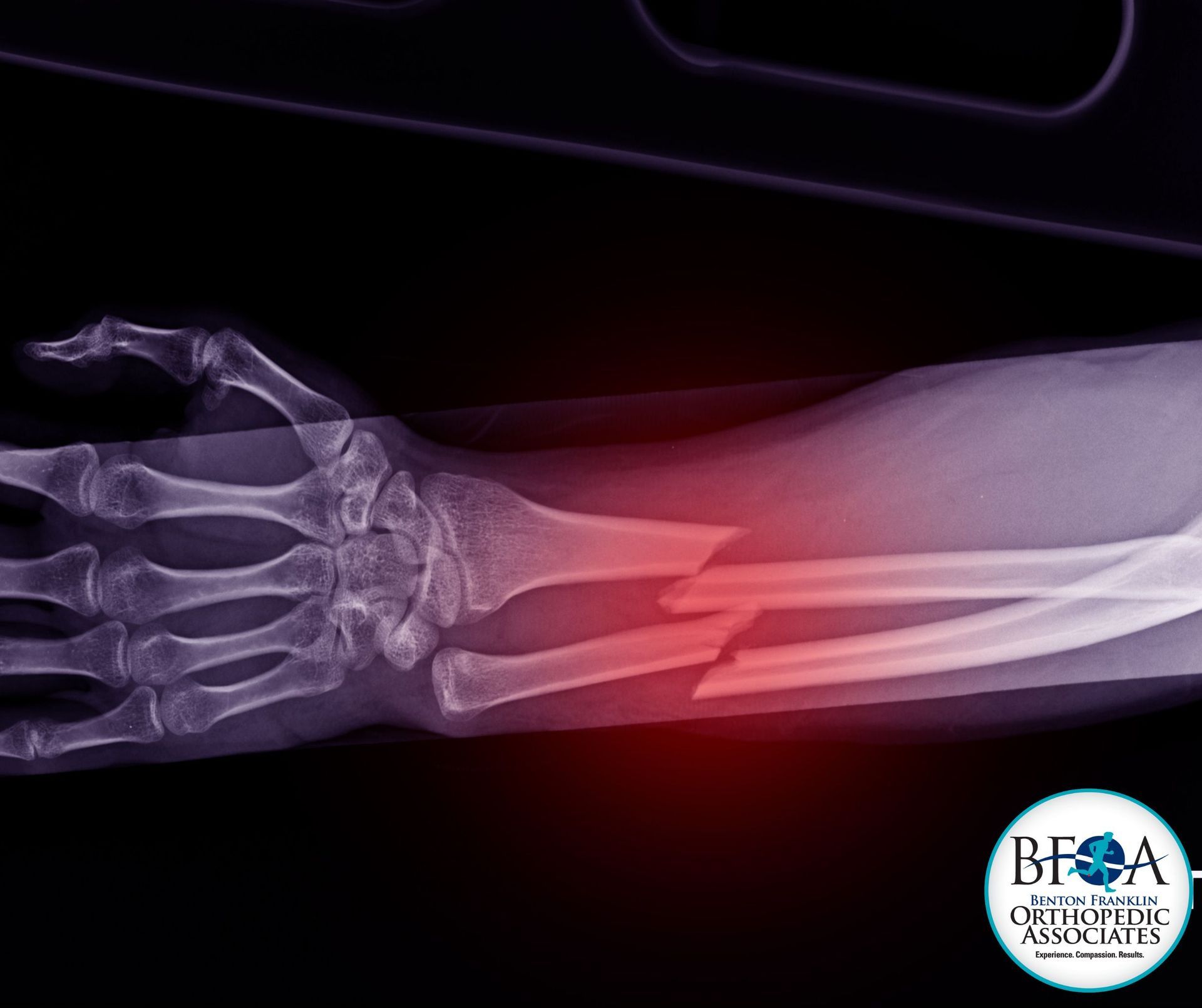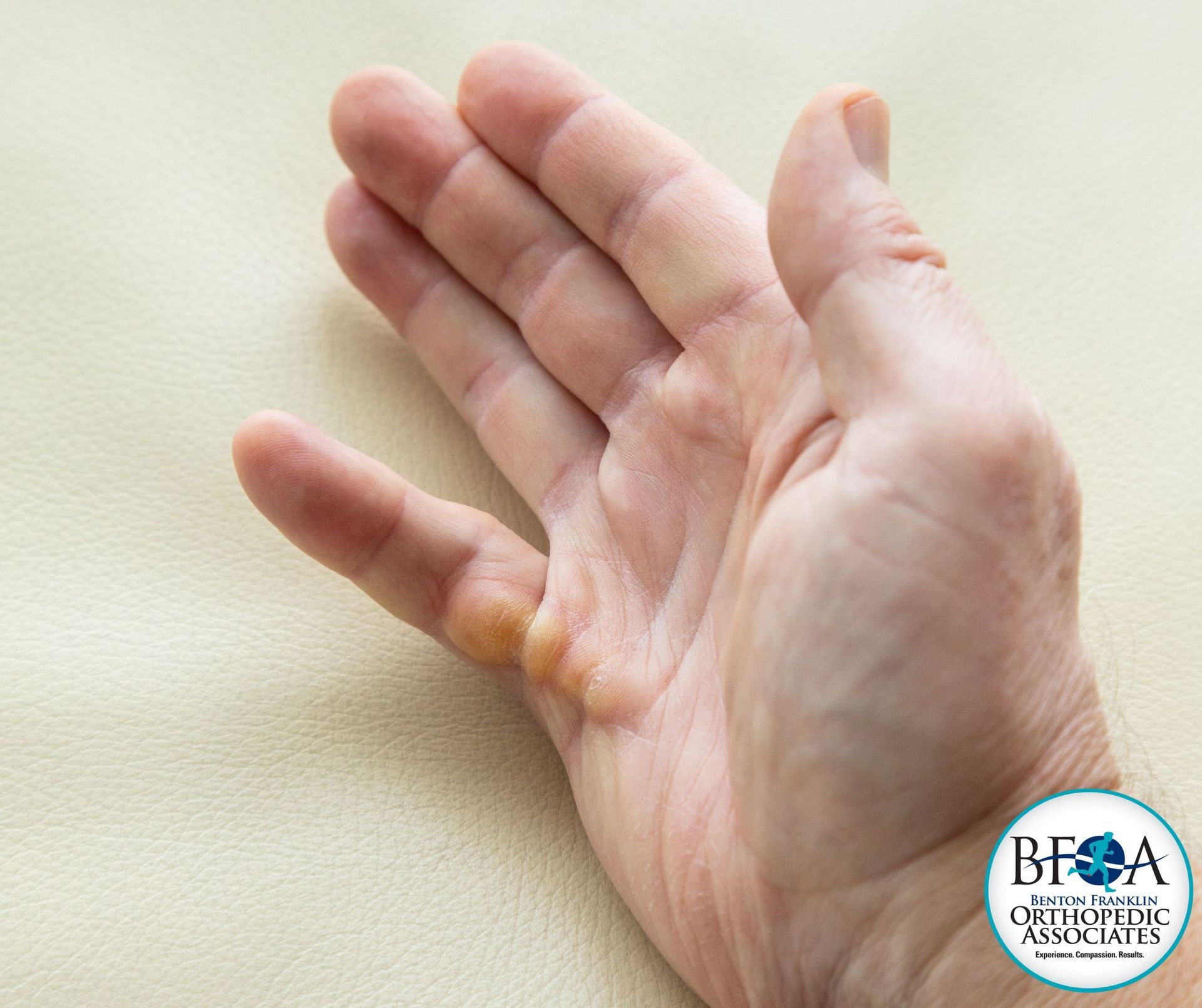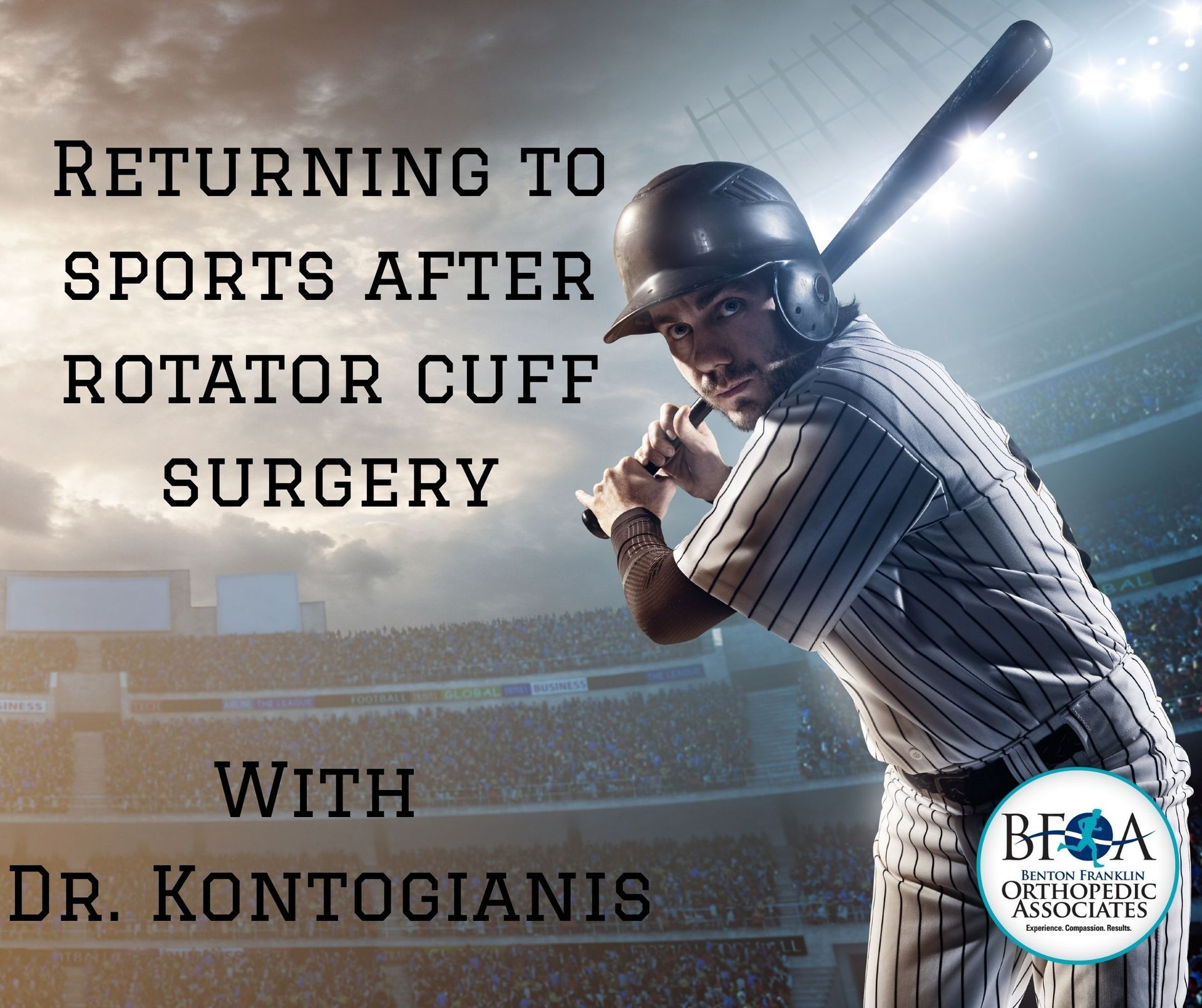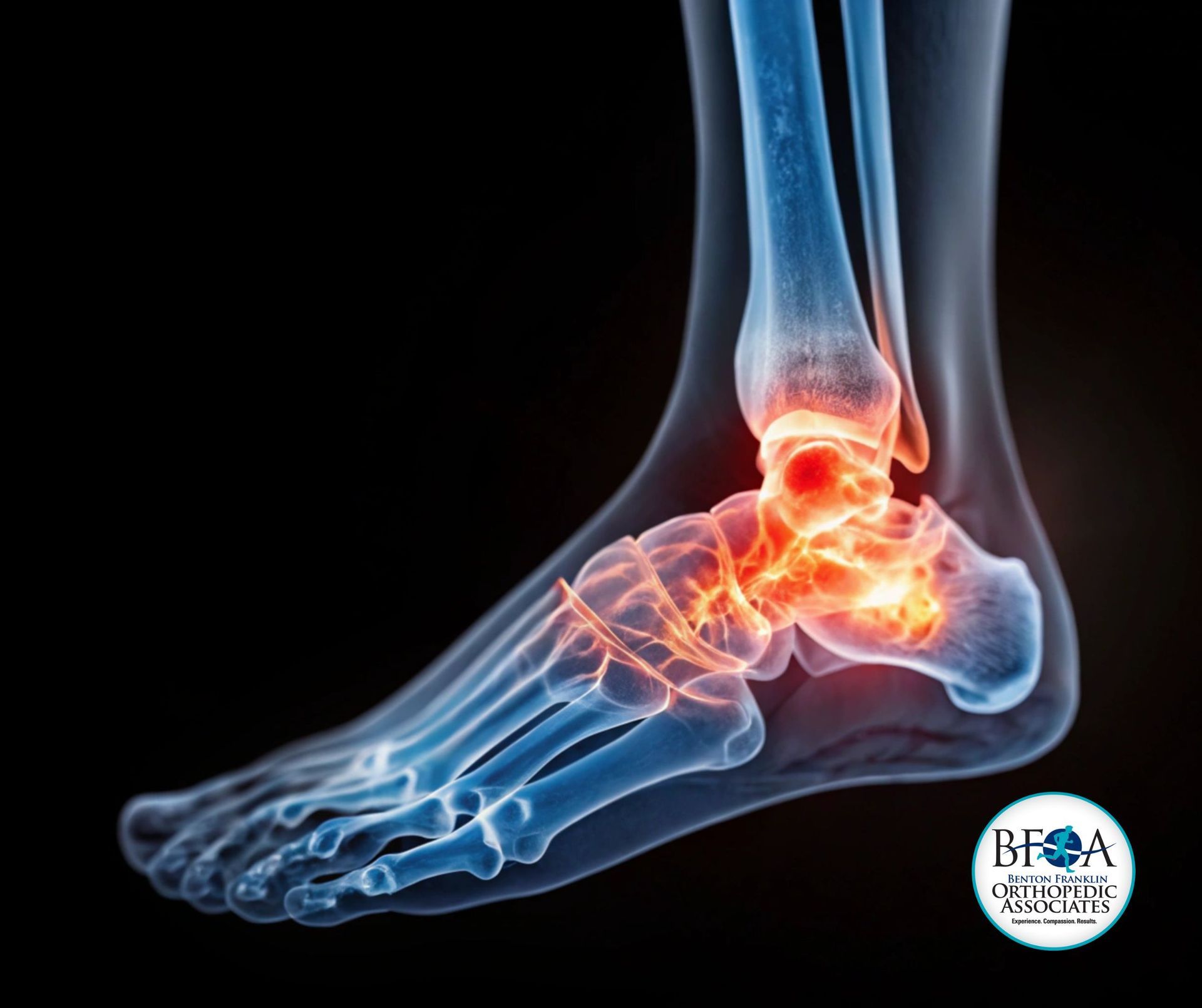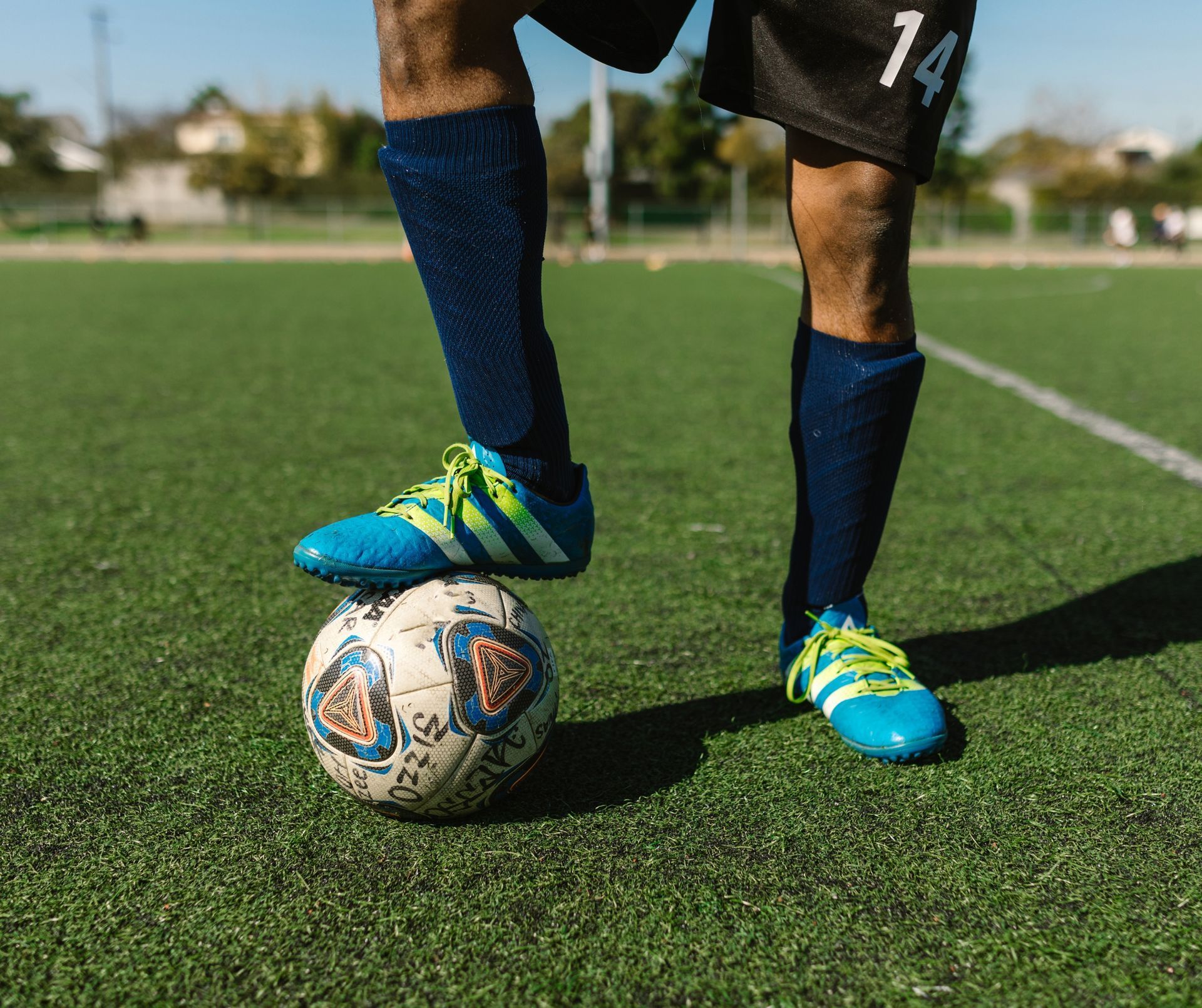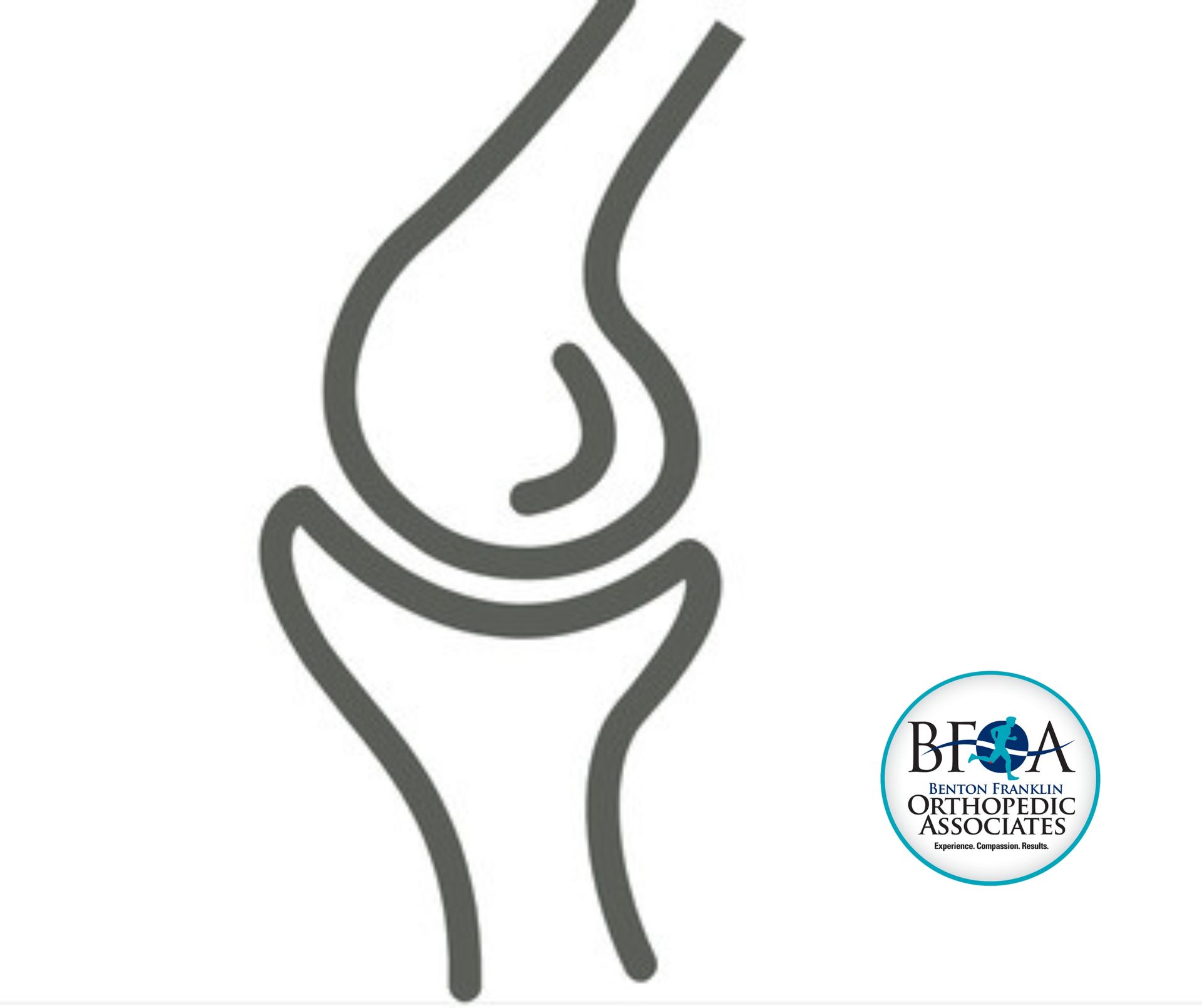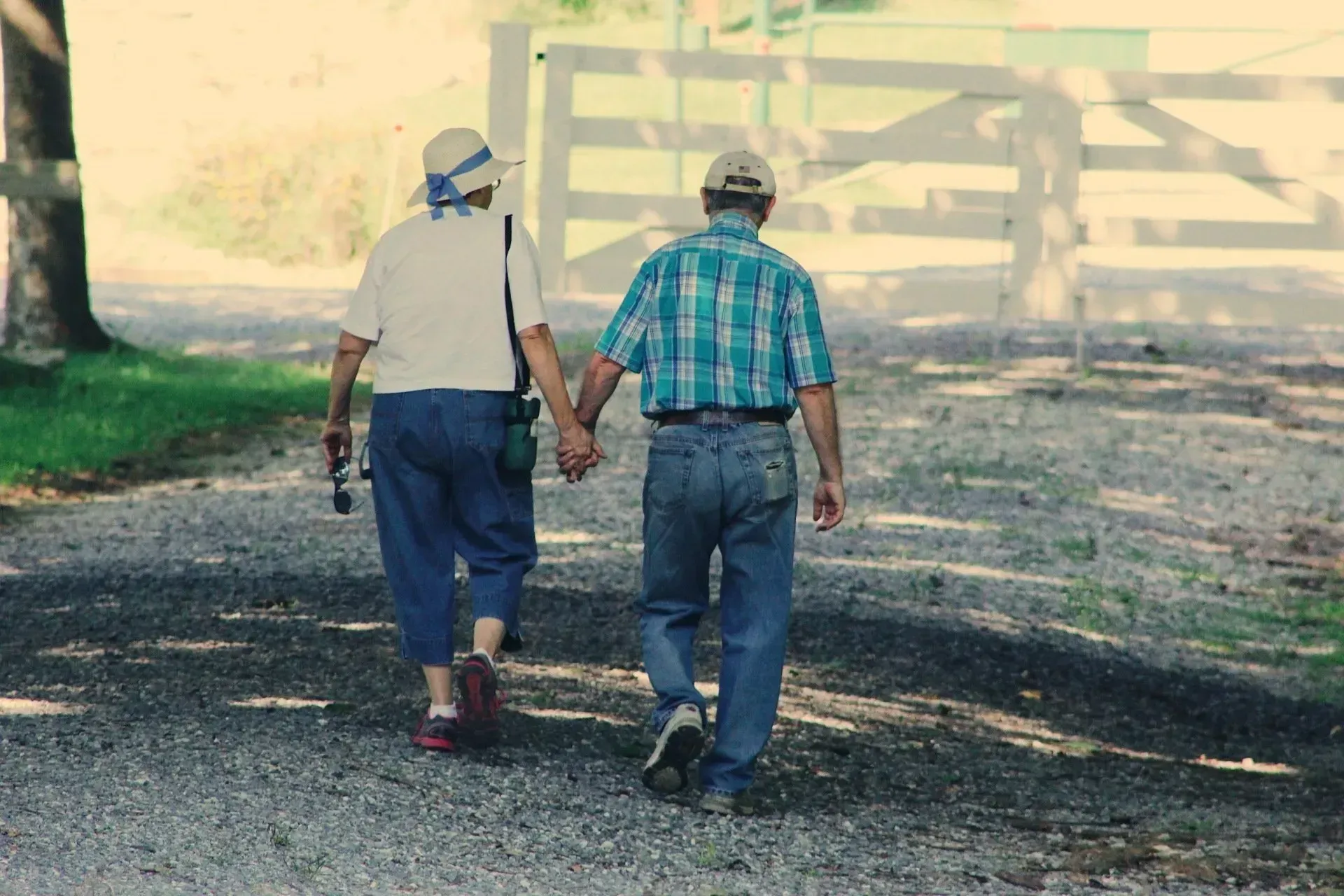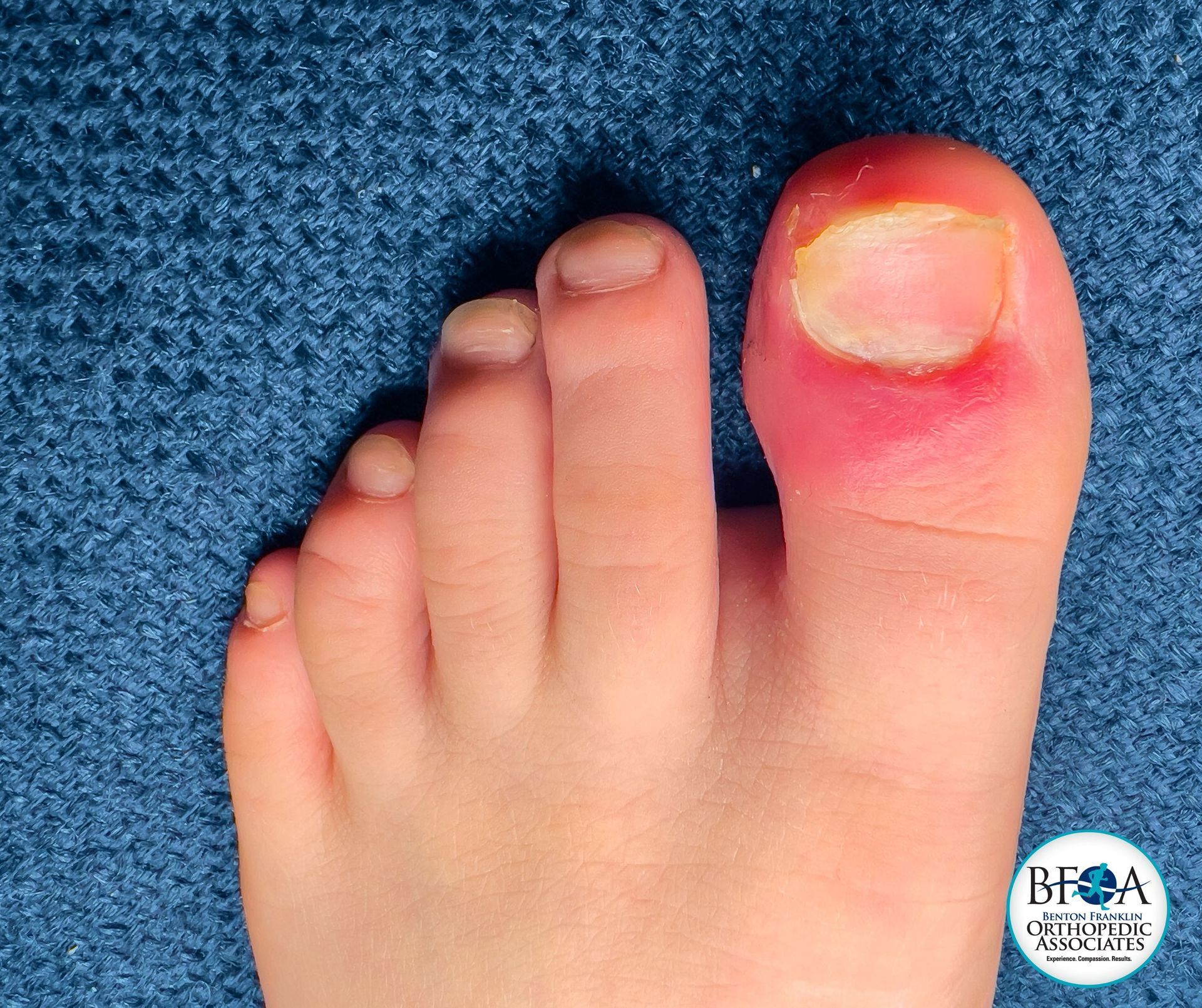Medial Collateral Ligament (MCL) Tear in Kennewick, WA
Medial Collateral Ligament (MCL) Tear: Causes, Symptoms, and Comprehensive Care

The Medial Collateral Ligament (MCL) is one of the key stabilizers of the knee, and injuries to it are common—especially among athletes and active individuals. At Benton Franklin Orthopedic Associates, we provide expert diagnosis, personalized treatment, and in-house physical therapy to help you recover fully and return to the activities you love.
What Is an MCL Tear?
The MCL is a strong band of tissue located on the inner side of the knee, connecting the thigh bone (femur) to the shin bone (tibia). It helps stabilize the knee and prevent it from bending inward. An MCL tear occurs when this ligament is stretched or torn, either partially or completely.
MCL injuries often result from:
- Direct blows to the outside of the knee, such as during football or hockey.
- Sudden twisting or pivoting motions.
- Landing awkwardly from a jump.
- Skiing accidents, especially when the ski catches and twists the leg.
- Falls or collisions in contact sports.
- Overuse or repetitive stress in athletes and runners.
Symptoms can vary depending on the severity of the tear:
- Pain on the inner side of the knee.
- Swelling and tenderness along the ligament.
- Instability or looseness in the knee joint.
- Stiffness and reduced range of motion.
- A popping sound at the time of injury (in more severe cases).
- Difficulty walking or bearing weight.
Athletes may notice pain when cutting, pivoting, or changing direction, and runners may feel discomfort during push-off or stride extension.

How do you diagnose an MCL tear?
At Benton Franklin Orthopedic Associates, we use a thorough diagnostic process to assess the extent of the injury:
Medical History & Physical Exam:
- We’ll ask how the injury occurred and perform hands-on tests to check for tenderness, swelling, and joint stability.
- The valgus stress test is commonly used to evaluate MCL integrity.
Imaging:
- X-rays help rule out fractures or bone damage.
- MRI scans provide detailed images of the ligament and surrounding structures, helping us determine the grade of the tear.
- Grade 1: Mild sprain with minimal fiber damage.
- Grade 2: Partial tear with noticeable looseness.
- Grade 3: Complete tear with significant instability.

At Benton Franklin Orthopedic Associates, we believe in “Conservative care first. Surgery only when necessary.” Most MCL tears—especially Grades 1 and 2—heal well without surgery.
Our non-surgical treatment options could include one or more of the following below:
1. RICE Protocol (Rest, Ice, Compression, Elevation):
- Rest: Avoid activities that aggravate the knee, especially twisting or pivoting motions.
- Ice: Apply ice packs for 15–20 minutes every few hours to reduce swelling and pain.
- Compression: Use an elastic bandage or knee brace to minimize swelling and support the joint.
- Elevation: Keep the knee elevated above heart level to help reduce inflammation.
2. Medications:
- NSAIDs (Nonsteroidal Anti-Inflammatory Drugs) such as ibuprofen or naproxen can help relieve pain and reduce swelling.
- In some cases, topical anti-inflammatory creams may also be recommended.
3. In-House Physical Therapy:
- Our licensed physical therapists work closely with our orthopedic team to design a customized rehabilitation plan.
- Therapy focuses on:
- Strengthening the muscles around the knee to improve joint stability.
- Improving flexibility and range of motion.
- Correcting movement patterns to prevent future injuries.
- Gradual return-to-activity programs for athletes and active individuals.
4. Activity Modification:
- We may recommend temporarily avoiding high-impact activities such as running, jumping, or squatting.
- Low-impact exercises like swimming or cycling may be introduced as healing progresses.
5. Knee Bracing or Support:
- A supportive knee brace may be used to stabilize the joint during recovery, especially if the tear causes instability or locking.
6. Injections (Emerging Options):
- While not standard for all cases, some patients may benefit from:
- Corticosteroid injections to reduce inflammation and pain.
- Platelet-Rich Plasma (PRP) or other biologic injections, which are being studied for their potential to promote healing in certain types of meniscus injuries.

When surgery is needed?
Surgery is rarely required for isolated MCL tears, but it may be necessary if:
- The tear is Grade 3 and the knee remains unstable
- There are multiple ligament injuries (e.g., ACL + MCL)
- The ligament is torn from the bone and cannot heal properly on its own
- Conservative treatment fails to restore function
Our orthopedic surgeons specialize in minimally invasive MCL repair or reconstruction, often performed alongside other procedures if needed.
Take the first step toward healing!
Whether you’re an athlete, weekend warrior, or simply want to walk without pain, Benton Franklin Orthopedic Associates is here to help you heal and move forward.
With expert orthopedic care, in-house physical therapy, and a philosophy of “Conservative care first. Surgery only when necessary,” you can trust that your treatment plan will be tailored to your needs and goals.
🦵 Don’t let knee pain hold you back.
📅 Schedule your consultation today and take the first step toward getting back to the activities you love.
📞 Call us at (509) 586-2828
📍 Visit us at 8200 W Gage Blvd, Kennewick, WA 99336
🌐 Book online at www.bfoaonline.com



